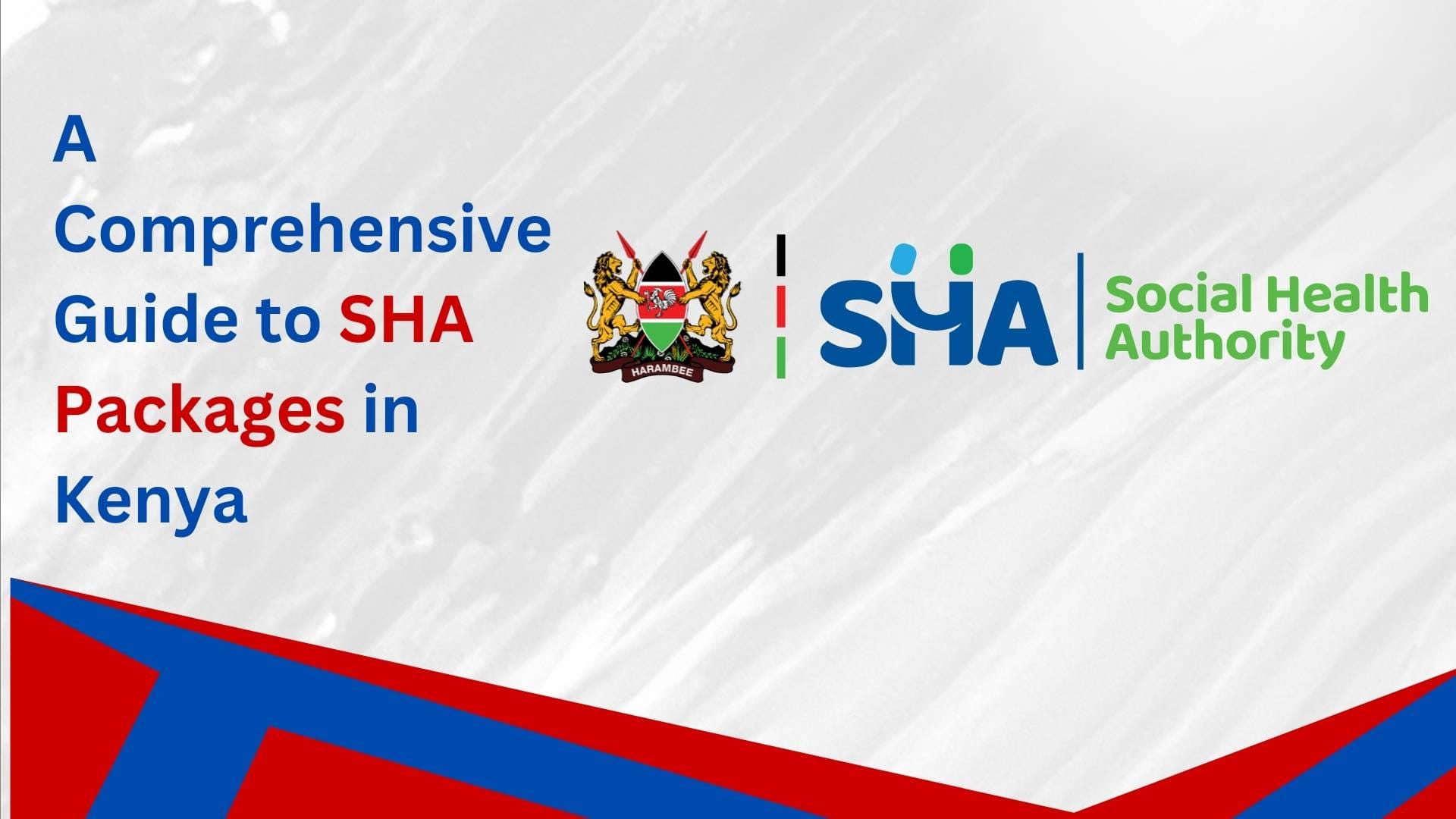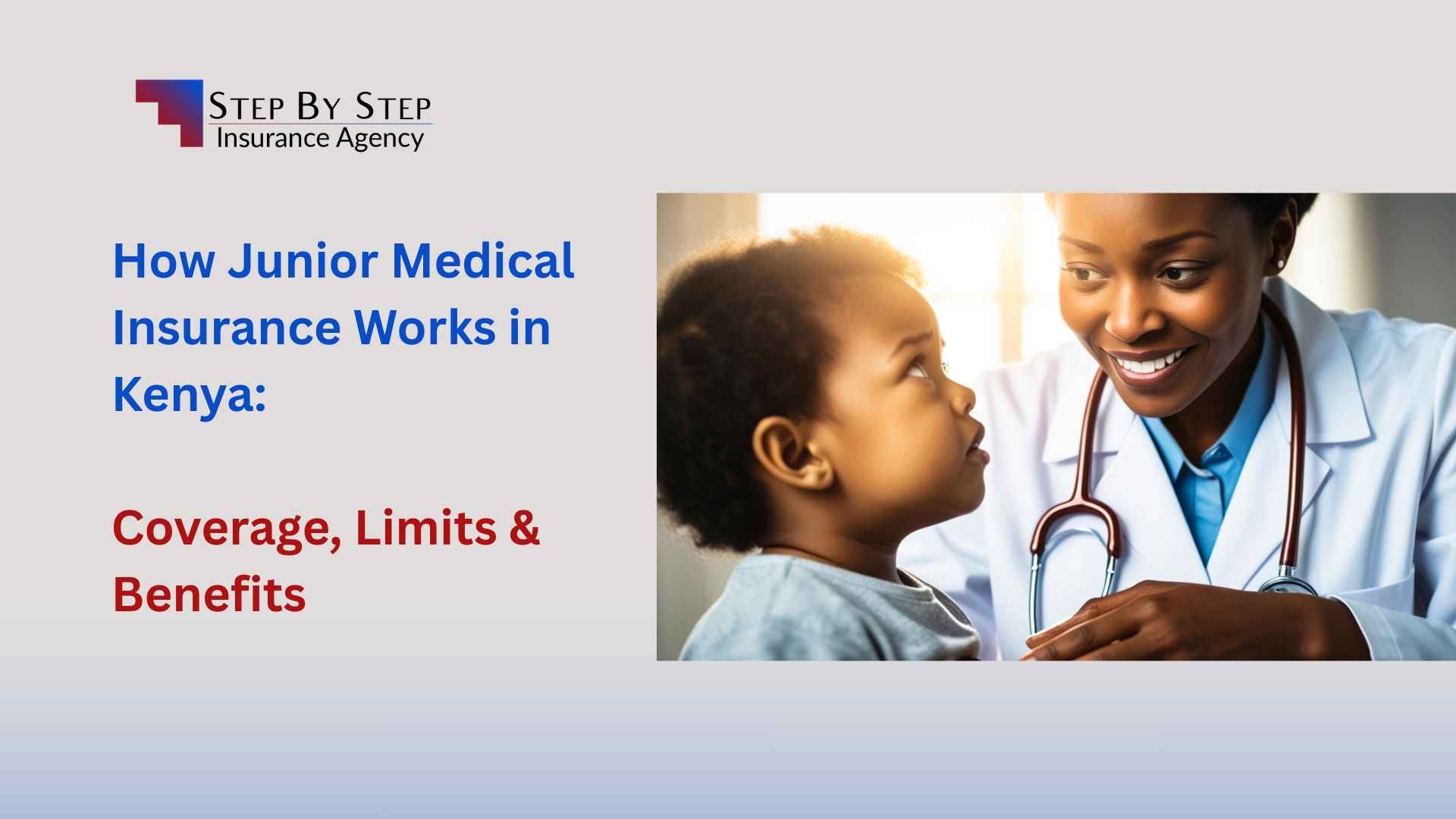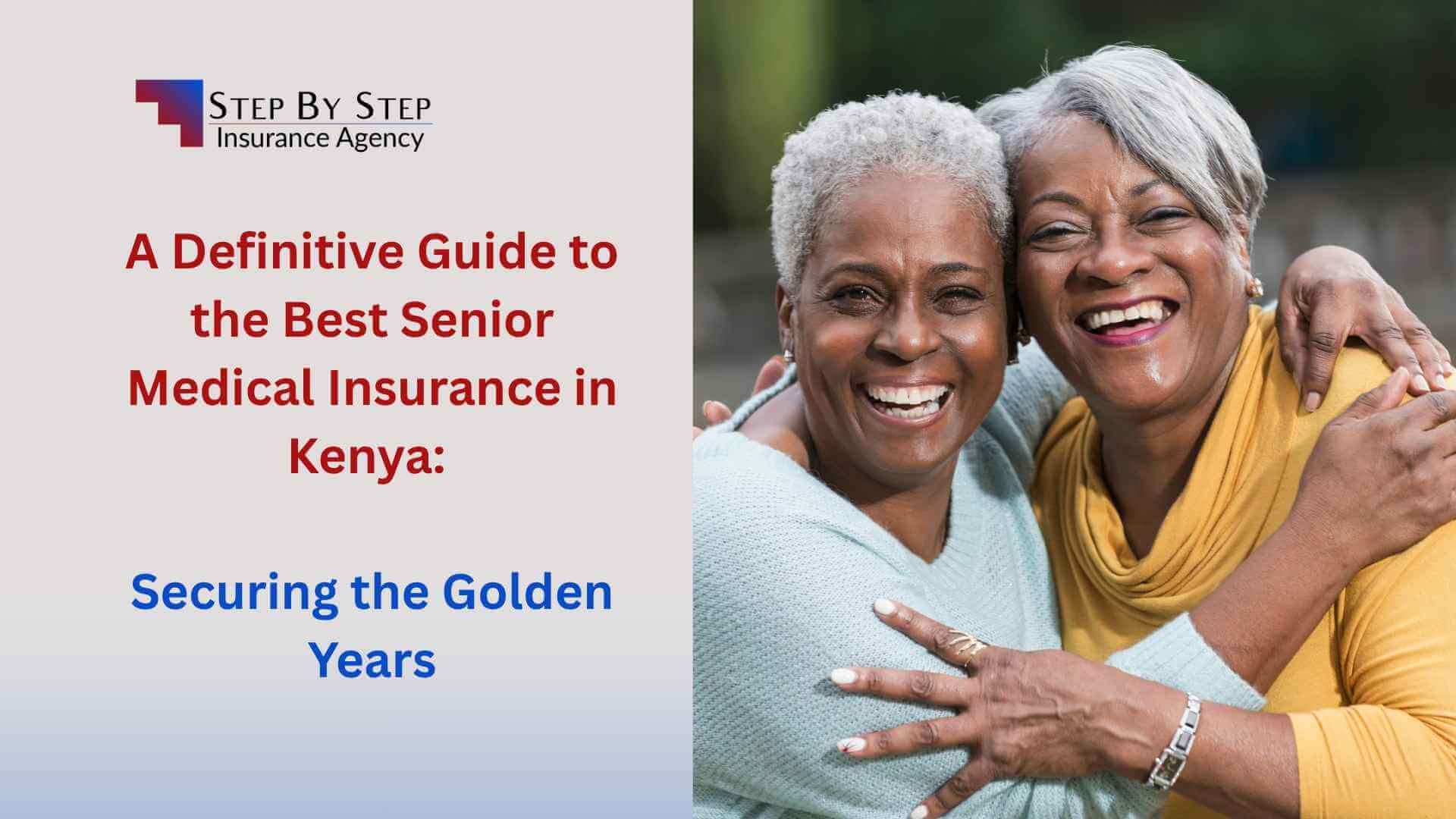A Comprehensive Guide to SHA Packages in Kenya
The Social Health Authority (SHA) is set to revolutionize healthcare in Kenya by consolidating various health services under the Social Health Insurance Fund (SHIF). With its official launch on October 1, 2024, SHA aims to provide comprehensive healthcare coverage to all Kenyans, ensuring access to quality services without causing financial hardship. This article will explore the full list of SHA packages, including in-patient services, maternity care, intensive care unit (ICU) services, cancer treatment, and more.
Key Takeaways
- SHA replaces NHIF with three specialized funds: PHF, SHIF, and ECCIF
- Mandatory 2.75% income contribution funds SHIF coverage
- Comprehensive packages cover everything from primary care to critical illnesses
- Standardized tariffs bring transparency to healthcare pricing
- Vulnerable populations receive government-supported coverage
Table of Contents
Join Our Insurance Community
Connect with insurance professionals and enthusiasts to discuss the latest trends, SHA updates, and healthcare solutions in Kenya
Join WhatsApp GroupOverview of the Social Health Authority (SHA)
What is SHA?
The Social Health Authority (SHA) is a government initiative designed to manage health insurance in Kenya, replacing the National Health Insurance Fund (NHIF). The primary objective of SHA is to ensure that all Kenyans have access to affordable and quality healthcare services. This transition reflects the government’s commitment to achieving Universal Health Coverage (UHC) and improving the overall health outcomes for its citizens.
Established under the Social Health Insurance Act of 2023, SHA aims to provide accessible and affordable healthcare for all Kenyans by managing three key funds: the Primary Healthcare Fund (PHF), Social Health Insurance Fund (SHIF), and the Emergency, Chronic, and Critical Illness Fund.
Each of these funds is designed to offer specific health services to Kenyans, catering to different healthcare needs. Below, we break down the benefits and services provided by each fund, along with tariffs, coverage, and essential information that every Kenyan should know.
Definition of Tariff in SHIF Context
Tariff: A tariff in the SHIF framework is a predetermined price set for specific medical services, treatments, or procedures that the fund will reimburse healthcare providers. These tariffs are designed to standardize costs across different healthcare facilities.
Purpose of Tariffs in SHIF
- Cost Control: Tariffs help manage and control healthcare costs by establishing clear pricing for services. This ensures that both patients and providers have a clear understanding of what is covered and at what cost.
- Budgeting for Healthcare Services: By setting fixed rates, SHIF can better estimate its financial obligations and allocate resources accordingly. This helps in maintaining the sustainability of the fund.
- Transparency: Tariffs provide transparency for patients regarding the costs of healthcare services. Patients can know in advance how much they will be covered for specific procedures, enabling them to make informed decisions about their healthcare options.
Who Pays the Tariffs?
Contributors:
- Employees: A portion of the cost for healthcare services, represented by tariffs, is covered through mandatory contributions deducted from employees’ gross salaries. Starting from October 1, 2024, employees will have 2.75% of their gross salary deducted and remitted to the SHIF as their contribution. This deduction serves to fund the healthcare services they and their dependents can access under the SHIF framework.
- Self-Employed Individuals: Those who are self-employed will also contribute 2.75% of their gross income to SHIF, ensuring they have access to the same benefits as salaried employees.
- Employers: Employers are responsible for deducting the SHIF contributions from their employees’ salaries and remitting these amounts to the Social Health Authority (SHA). This means that while employees ultimately pay for the tariffs through deductions, employers play a crucial role in facilitating these payments.
- Government Support: The government may also contribute to the SHIF through appropriations aimed at supporting vulnerable populations or specific health initiatives. This helps ensure that healthcare remains accessible to all Kenyans, including those who may not be able to afford contributions.
1. Primary Healthcare Fund (PHF)
The Primary Healthcare Fund is designed to cover essential health services, focusing on outpatient care at local healthcare facilities like dispensaries and health centers. This fund aims to provide basic healthcare services free of charge, funded by government allocations and external grants, meaning no individual contributions are required from the public.
Key Services Covered:
- Outpatient Care Services: This includes health education, diagnosis, consultations, treatment, basic lab tests, and prescription drug dispensing.
- Maternity, Newborn, and Child Health Services: Includes antenatal care, normal delivery, caesarean sections, postnatal care, and newborn care.
- Pre-Cancerous Lesion Management: Screening for cancers such as breast, cervical, prostate, and colon cancer. Treatments include cryotherapy, thermal ablation, and LEEP procedures.
| Service Category | Description | Tariff |
|---|---|---|
| Outpatient Care Services | Health education, consultation, diagnosis, and treatment Prescribed lab tests and basic radiology (X-rays, ultrasounds) Prescription and drug dispensing Management of acute and chronic conditions Minor surgeries and immunization as per schedule |
Sh 900 per person annually |
| Maternity, Newborn and Child Health Services | Antenatal care, normal delivery, caesarean sections Postnatal care for mother and newborn Nursing care, ward charges, diagnostic lab tests |
Normal delivery: Sh 11,200 Caesarean section: Sh 32,600 |
| Screening & Management of Pre-Cancerous Lesions | Screening for cancers (breast, cervix, prostate, colon) Cryotherapy, thermal ablation, and LEEP |
HPV Screening: Sh 3,600 PSA Test: Sh 1,500 Stool Occult Blood Test: Sh 400 Cryotherapy & Thermal Ablation: Sh 3,000 LEEP: Sh 2,800 |
| Optical Health Services | Consultation and diagnosis for eye health Provision of eyeglasses for refractive errors |
Consultation & Eyeglasses: Sh 935 Limit: Sh 1,000 per household |
| End of Life Services | Preparation, preservation, and storage of body in mortuary | Sh 500 per day (limit up to 5 days) |
| Medical Inpatient Services | Disease management, admission charges, nursing care Laboratory tests, imaging, medication, and therapeutic support |
Sh 2,400 per day (limit up to 50 days) |
2. Social Health Insurance Fund (SHIF)
The Social Health Insurance Fund (SHIF) covers inpatient services for Kenyans at advanced healthcare facilities, specifically at Level 4 to Level 6 hospitals. These levels correspond to progressively specialized medical facilities that offer more advanced and comprehensive healthcare.
Healthcare Facility Levels Explained:
- Level 4: County Referral Hospitals. These hospitals provide specialized inpatient and outpatient services, including surgeries, maternity services, and specialist consultations.
- Level 5: Regional Referral Hospitals. Offering more specialized care than Level 4, including specialized surgeries, and intensive care units (ICU).
- Level 6: National Referral Hospitals. These are the top-tier hospitals in Kenya, offering super-specialized services, including organ transplants, advanced oncology, and highly complex surgeries.
Key Features of the Social Health Insurance Fund (SHIF):
- Inpatient Services: SHIF covers inpatient services for a variety of conditions, ensuring that Kenyans receive care for illnesses or injuries requiring hospitalization, specialist consultations, diagnostic tests, and advanced care.
- Maternity and Neonatal Care: Comprehensive care for normal and caesarean deliveries, as well as specialized care for newborns and maternal health.
- Renal Care Services: SHIF provides support for patients with chronic and acute kidney conditions requiring dialysis.
- Mental Health Services: Coverage for both outpatient consultations and inpatient care for mental health conditions, as well as rehabilitation for substance use disorders.
- Surgical Services: SHIF ensures access to minor and major surgeries, including specialized surgical procedures, organ transplants, and post-operative care.
| Service Category | Description | Tariff |
|---|---|---|
| Outpatient Care Services | Similar to primary health care services, including consultations, diagnosis, and treatments Screening for common health conditions |
Sh 2,000 per visit (limit of 4 visits per person annually) |
| Medical Inpatient Services | Similar to PHC inpatient services, including hospital accommodation and specialist reviews | Level 4 – Sh 3,500 per day Level 5 – Sh 4,000 per day Level 6 – Sh 5,000 per day Limit: Up to 50 days per household |
| Maternity, Neonatal and Child Health Services | Normal deliveries, assisted deliveries, caesarean sections Newborn care, midwifery, diagnostics, and family planning |
Normal delivery – Sh 11,200 Caesarean Section – Sh 32,600 |
| Renal Care Package | Dialysis management for chronic and acute kidney failure Specialist consultations, lab tests, and medication |
Hemodialysis & Hemodiafiltration – Sh 10,650 per session Peritoneal dialysis – Sh 180,000 per month Limits: 3 sessions/week for hemodialysis, 2 sessions/week for hemodiafiltration, 12 sessions/year for peritoneal dialysis |
| Mental Wellness Benefit Package | Mental health education, screening, and management of disorders Rehabilitation for substance use disorders |
Outpatient – Sh 1,200 per visit (limit of 7 visits) Inpatient per diem: Level 4 – Sh 3,500; Level 5 – Sh 4,000; Level 6 – Sh 5,000 Detoxification – Sh 14,000 Rehabilitation – Sh 125,000 |
| Surgical Services Package | Pre-operative care, minor, major, and specialized surgeries Post-operative care, including follow-ups and pain management Organ transplants and implants |
Based on a schedule of surgical procedures |
| Oncology Services | Cancer screening and treatment (breast, prostate, cervical, childhood cancers) Administration of chemotherapy, radiotherapy, and brachytherapy |
Chemo administration – Sh 5,000 PET Scan – Sh 53,500 PSMA PET Scan – Sh 64,200 CT Scan – Sh 9,600 MRI – Sh 11,000 |
| Medical Imaging and Other Investigations Package | Specialized imaging: MRI, CT scans, mammography, ultrasounds | MRI – Sh 11,000 CT Scan – Sh 9,600 CT Angio – Sh 8,000 Mammography – Sh 3,000 |
| Pharmacy Package | Medicines for chronic conditions like diabetes, hypertension, asthma, renal disease, oncology, mental health, epilepsy | Quarterly limit of Sh 5,000 per person |
| Specialized Laboratory Services | Laboratory tests for chronic conditions and select diseases | Quarterly limit of Sh 5,000 per person |
| End of Life Services | Preparation, preservation, and storage of the body | Sh 500 per day (limit up to 5 days) |
Detailed Breakdown of SHIF Services:
- Inpatient Care Services: SHIF covers the cost of hospital stays, including accommodation, nursing care, diagnostic tests, and treatments for patients admitted to Level 4 to Level 6 facilities. Patients requiring specialist consultations and therapeutic support will have access to these services throughout their stay.
- Maternity and Neonatal Care: SHIF provides coverage for both normal and caesarean deliveries, ensuring safe childbirth services. Level 4 to Level 6 hospitals will handle both straightforward and complex deliveries, including specialized newborn care and maternal health services.
- Renal Care Services: Patients suffering from chronic and acute kidney conditions are covered for hemodialysis and peritoneal dialysis. Each session includes consultations with kidney specialists and the necessary lab tests. Dialysis services are provided at Level 5 and Level 6 facilities, which have the necessary equipment and expertise for managing kidney failure.
- Mental Health Services: SHIF covers outpatient consultations for mental health screening and treatment at Level 4 and Level 5 hospitals. Inpatient care for severe mental health conditions is available at Level 4 to Level 6 facilities, ensuring comprehensive care for those requiring hospitalization. The package includes rehabilitation for substance use disorders, covering detoxification and long-term rehabilitation programs.
- Surgical Services: SHIF ensures access to both minor and major surgeries. Pre-operative and post-operative care are covered, ensuring patients receive full-cycle care during and after surgical procedures. Organ transplants and highly specialized surgeries are also covered under this fund, available at Level 6 facilities.
- Additional Services:
- Oncology (Cancer Care): SHIF includes cancer treatments such as chemotherapy, radiotherapy, and imaging (e.g., PET scans, MRI). These specialized services are provided at Level 5 and 6 hospitals.
- Medical Imaging and Investigations: SHIF covers specialized imaging services like MRI, CT scans, and mammography, offered at Level 4 to Level 6 hospitals.
- Pharmacy Services: SHIF provides medication for chronic conditions such as diabetes, hypertension, asthma, and cancer. Patients receive prescription drugs through Level 4 to Level 6 hospitals, with a quarterly limit on the amount.
The Impact of SHIF on Kenyans:
The Social Health Insurance Fund (SHIF) aims to reduce the financial burden of inpatient services, especially for serious health conditions requiring long-term or specialized care. By covering a wide range of services from childbirth to kidney dialysis, mental health, and surgeries, SHIF enhances access to quality healthcare for Kenyans.
While the tariffs may appear lower than market rates, the wide coverage of these services across Level 4 to Level 6 facilities ensures that essential healthcare remains accessible for the majority of the population. This comprehensive fund represents a significant step forward in making high-quality inpatient services more affordable for all.
3. Emergency, Chronic, and Critical Illness Fund
The Emergency, Chronic, and Critical Illness Fund (ECCIF) is specifically designed to handle serious health conditions that require immediate or intensive care. This fund focuses on providing critical services such as emergency response, intensive care, chronic illness management, and palliative care. It serves as a safety net for vulnerable populations, ensuring that urgent and life-threatening conditions are promptly addressed.
Key Services Covered under ECCIF:
- Ambulance and Emergency Evacuation Services
- Accident and Emergency Services
- Critical Illness Coverage
- Palliative Care Services
- Management of Chronic Illnesses
- Provision of Assistive Devices
a. Ambulance and Emergency Evacuation Services
In cases of emergency, ECCIF offers ground ambulance services to evacuate patients to the nearest medical facility. This ensures that individuals facing severe medical conditions, accidents, or sudden illnesses can receive immediate medical intervention.
Tariff for Ambulance Services:
Up to 25 km radius: KSh 4,500
Beyond 25 km: KSh 75 per kilometer
b. Accident and Emergency Services
The fund provides coverage for accident and emergency treatment, focusing on life-saving procedures such as resuscitation and stabilization for patients suffering from trauma, shock, or respiratory distress. These services are available at Level 4 to Level 6 healthcare facilities equipped with emergency response units.
Tariff: Varies based on the nature of the emergency condition.
c. Critical Illness Coverage
ECCIF ensures that individuals with critical illnesses are admitted to specialized care units such as Intensive Care Units (ICU), High Dependency Units (HDU), and Neonatal/Pediatric Intensive Care Units (NICU/PICU). These units are essential for managing patients with life-threatening conditions that require constant monitoring and advanced medical care.
Tariffs for Critical Care:
ICU: KSh 35,000 per day
HDU: KSh 10,000 per day
NICU/PICU: Based on specialized care needed
This coverage ensures that individuals suffering from conditions like organ failure, severe infections, or other life-threatening health issues receive the necessary treatment at Level 5 and Level 6 hospitals.
d. Palliative Care Services
For patients dealing with chronic or life-threatening illnesses, palliative care is essential for improving the quality of life. The ECCIF provides access to pain management, counseling, and other supportive services to help patients and their families manage end-of-life care with dignity.
Tariff for Palliative Care: KSh 5,000 per day (up to 60 days)
e. Management of Chronic Illnesses
The fund also extends to chronic illnesses that require long-term care, such as diabetes, hypertension, asthma, and mental health conditions. This coverage supplements the Social Health Insurance Fund (SHIF) by offering additional support when the costs for chronic care exceed the SHIF limits.
Tariff: Follows SHIF tariff structure, providing additional coverage for chronic illness management at Level 4 to Level 6 facilities.
f. Provision of Assistive Devices
For individuals with permanent physical or sensory disabilities, ECCIF facilitates the provision of assistive devices to improve mobility, hearing, vision, or other functional abilities. These devices include wheelchairs, prosthetic limbs, hearing aids, and visual aids.
Tariff: Varies based on the specific device.
Example: Hearing aids – KSh 55,000
| Service Category | Description | Tariff |
|---|---|---|
| Ambulance Evacuation Services | Ground evacuation from incident location to the nearest facility | Up to 25 km radius – Sh 4,500 Beyond 25 km – Sh 75 per km |
| Accident & Emergency Services | Resuscitation and stabilization for trauma, shock, respiratory distress | Varies based on the emergency condition |
| Critical Illness Package | Critical care admissions (ICU, HDU, NICU, PICU) | ICU – Sh 35,000 per day HDU – Sh 10,000 per day |
| Palliative Care Services | Enhancing the quality of life for chronic or life-threatening conditions | Sh 5,000 per day (up to 60 days) |
| Chronic Illnesses | Management of chronic conditions exceeding SHIF limit (diabetes, hypertension, mental health) | Follows the SHIF tariff and rules |
| Assistive Devices | Provision of devices for permanent physical or sensory disabilities | Varies based on the device (e.g., Hearing aids – Sh 55,000) |
The Impact of ECCIF on Kenyans
The Emergency, Chronic, and Critical Illness Fund (ECCIF) ensures that Kenyans facing medical emergencies or chronic conditions receive the urgent and specialized care they need, without bearing the full financial burden. By covering critical care services, including intensive care, emergency response, and life-support treatments, ECCIF strengthens the healthcare safety net for all.
This fund particularly benefits those with chronic diseases, disabilities, and critical conditions, ensuring they have access to life-saving interventions and long-term management.
The Impact of SHA on Kenya’s Healthcare System
The consolidation of healthcare services under the SHA umbrella is expected to streamline operations, reduce inefficiencies, and provide equitable healthcare access. By adopting a unified system, SHA eliminates the bureaucratic layers previously present in health insurance and fund allocation, thus creating a more transparent and effective system.
Moreover, SHA’s reliance on government allocations, contributions from Kenyans (such as the 2.75% income contribution for SHIF), and external grants makes it financially sustainable. The SHA packages aim to cover a wide range of health services, making it a comprehensive healthcare solution for both everyday and emergency needs.
A Final Word on SHA’s Future Prospects
As the SHA officially launches, its success will largely depend on effective implementation, proper management of funds, and continued oversight to ensure that the quality of care improves and that all Kenyans benefit from these services. The focus on both preventive and emergency care represents a shift toward a more holistic approach to health, enhancing Kenya’s overall healthcare landscape.
With SHA packages now in place, Kenyans can look forward to a future where healthcare is more accessible, equitable, and responsive to their needs.
SHA Explained: Video Overview
Additional Resources
SHA Packages Guide
Detailed information about all SHA packages and coverage options
Read Comprehensive Guide to SHA PackagesAfya Yangu Registration
Step-by-step guide to registering for Afya Yangu health coverage
Afya Yangu Registration GuideSHIF Registration
Complete instructions for registering with the Social Health Insurance Fund
SHIF Registration Step-by-Step GuideSHA FAQs
Answers to the most common questions about SHA coverage and benefits
Frequently Asked Questions on SHAContact SHA
The Social Health Authority (SHA) in Kenya can be contacted through various channels:
0800 720 601
customercare@sha.go.ke
info@sha.go.ke
Ground Floor, SHA Building, Ragati Road, Nairobi City
Branch Locations:
- KNH Hospital: Hospital Road, Nairobi, Kenya
- Eastleigh: Sunrise Shopping Mall, Nairobi City
- Westlands: Rainbow Towers, Nairobi City
- Kangemi: Palace Building, Co-Op Bank, Nairobi City
- Buruburu: Mesora Centre, Nairobi City
- Gikomba: SK Plaza, Nairobi City
- Mama Lucy Kibaki Hospital: Spine Road, off Kangundo Rd, Nairobi City
- Industrial Area: Liberty Plaza, Opp Imara Junction, off Mombasa Rd, Nairobi City
- Ruaraka: ICPAK Building, Near KCA University, Nairobi City
- Kabarnet: Mart Properties Limited, Baringo
- Eldama Ravine: KCB Building 2nd Flr Mercy Hosp Rd, Baringo
- Sotik: Bureti Tea Growers SACCO Building, Bomet
- Bomet: Aggie Plaza, Bomet
- Bungoma: Daimah Plaza (Bungoma-Kanduyi Rd), Bungoma
For more information, you can also visit the SHA official website or their Facebook page.
External Links
- Official SHA Website – The primary source for all SHA-related information and updates






